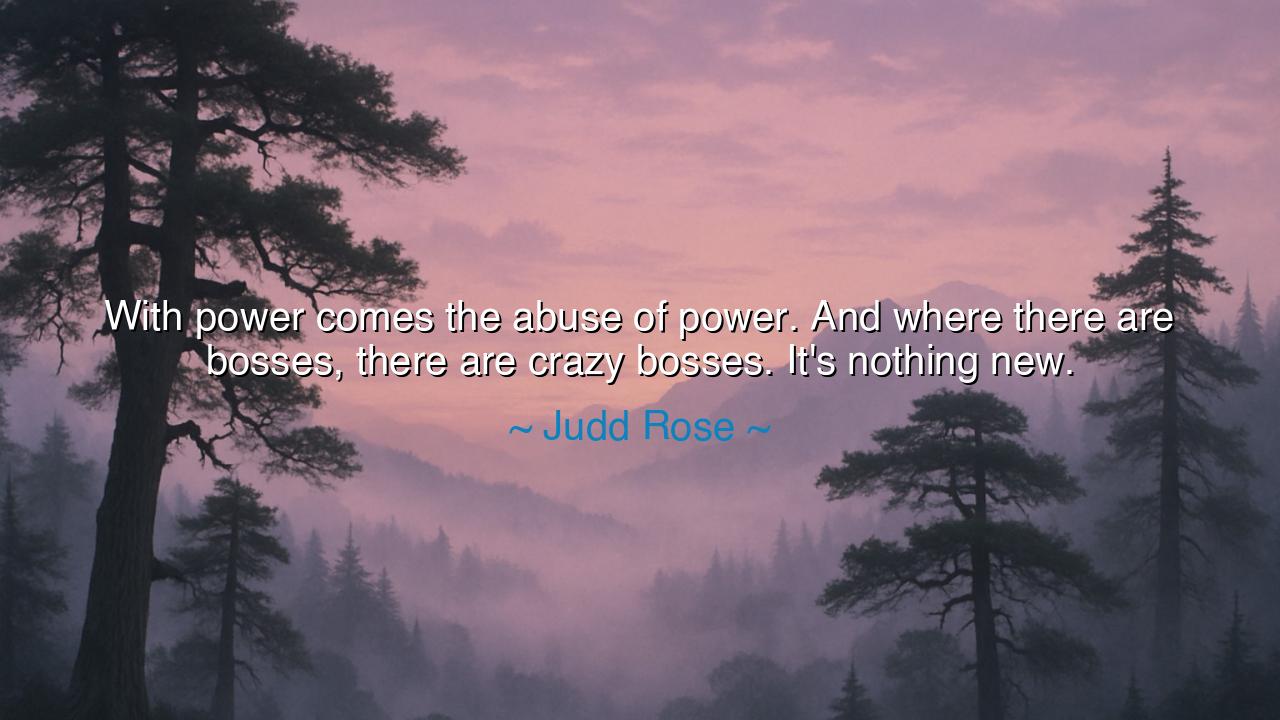
With power comes the abuse of power. And where there are bosses
With power comes the abuse of power. And where there are bosses, there are crazy bosses. It's nothing new.






Hearken, O children of discernment, to the worldly observation of Judd Rose, who speaks of the enduring truths of power and its perils. He declares that with the possession of power inevitably comes the abuse of power, for human hearts are prone to error, pride, and corruption. And where there are those who rule, there are those who may wield authority in madness or folly. Herein lies a teaching for the ages: vigilance, humility, and moral fortitude are essential for those both in authority and subject to it.
The origin of this reflection is rooted in Rose’s life as a journalist and commentator, observing the patterns of leadership in workplaces, governments, and human institutions. He discerned that the exercise of authority, whether grand or modest, often tempts individuals toward excess, arbitrariness, or cruelty. In his view, the phenomenon of the crazy boss is neither new nor unique; it is as old as human hierarchy itself, echoing through the annals of history and literature alike.
The meaning of this aphorism is profound: power, when concentrated in imperfect hands, carries inherent risk. Leaders, supervisors, and rulers may succumb to pride, anger, or caprice, while those beneath them must navigate both authority and its abuse. Rose reminds us that awareness of this tendency is a safeguard, for to expect fallibility is to prepare for it, and to act with prudence and ethical clarity in the face of human imperfection.
History provides living testimony to this truth. Consider King Nero of Rome, whose absolute authority descended into tyranny and madness. With unchecked power, he inflicted suffering upon his subjects, manipulated his court, and pursued capricious whims, leaving a legacy of fear and devastation. Nero’s reign exemplifies Rose’s counsel: where there is power, the potential for abuse and folly is ever present, and vigilance against such excess is a timeless necessity.
Moreover, this teaching extends beyond monarchs and rulers to every sphere of human endeavor. In offices, armies, councils, and families, the presence of authority carries the risk of irrational or excessive action. By recognizing the inevitability of crazy bosses, mortals cultivate discernment, patience, and strategy, learning to act with integrity while navigating the imperfections of those who lead.
O generations yet unborn, take this counsel into your hearts: be mindful of the dual nature of power—its capacity to build and its temptation to corrupt. Expect imperfection in those who wield authority, guard your own virtue against its misuse, and cultivate prudence, courage, and wisdom. For in understanding the age-old truths of human leadership, one may navigate the currents of power with foresight, resilience, and enduring discernment.






AAdministratorAdministrator
Welcome, honored guests. Please leave a comment, we will respond soon